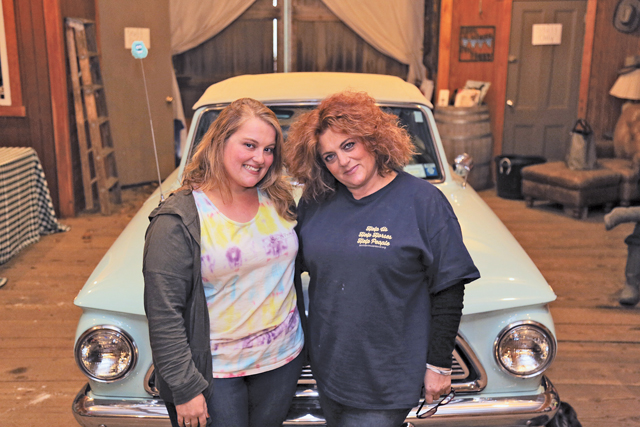Q & A with Lobster Roll Northside owner Fred Terry

Fred Terry and his father, Richard, purchased The Lobster Roll, a small clam shack in Amagansett, in 1965. The Terry family has operated the popular summer eatery since.
About 10 years ago, Fred opened Lobster Roll Northside in Baiting Hollow on a piece of land originally owned by his relatives, who he says are among the first Southold Town settlers.
He planned to auction off Lobster Roll Northside last month, but decided to hold on to it and expand. He plans to introduce new menu items and increased catering options at Lobster Roll Northside and is working on opening a number of gourmet seafood eateries around the region and across the country called Lobster Roll Express. We recently asked Fred about his philosophy when it comes to the restaurant industry.
Q: So, what is your philosophy?
A: Aside from having a basic level of skill and knowledge, restaurants are broken into two major areas, and they’re very different domains. The back of the house, which is more involved in food preparation and the culinary aspect of the business — sourcing the food, prepping the food, delivering the food. That’s where you involve the more creative individuals and people who have chef training and people who tend to be intensely more ego-centric and territorial.
The front of the house involves service, a positive disposition and good interpersonal skills. I have almost never found a person good at both [the front and back of the house.]
I have department managers, who I meet with frequently and you have to listen. You have to encourage feedback and listen to them and set expectations and meet goals. You can’t let a restaurant run itself – and that seems to happen – and yet you can’t be overbearing and run it like an inquisition. The number one reason I’ve seen private restaurants fail is the inability of owner operators to set boundaries between departments and between themselves and their employees.
Q: How has the East End restaurant industry changed since you bought your first restaurant in 1965? And where is it headed?
Full-service operations have become much more difficult to operate. Food service now has extended and become more pervasive with farm stands and wineries and other types of business strategies.
There will also be a significant increase in mobile food operations because it’s quick, it’s easy and it’s fast. And the key is they’re much, much more inexpensive to operate. You’re not strapped with enormous insurance and real estate tax costs, you can operate out of a commissary, you do not need the number of employees. Full-service restaurants will either move toward gourmet food — high-end, expensive gourmet dining — or toward TGIF’s, Applebee’s, value-oriented dining. And the people in the middle will likely disappear.
A: Where do you see yourself fitting in on that spectrum?
We’re modifying our business plan. We’re going to order a gourmet catering truck, we’re going to do special events and private house parties, particularly in the Hamptons, at wineries. Our business model is pretty much going to mimic the direction of the industry.
There’s a certain cache about having your own branded restaurant and bringing in your own facility on wheels. There’s a certain cache about having a strong branded restaurant, like Lobster Roll Express, come in and provide cocktail foods and so on and so forth. There seems to be no end in sight to what individuals will do to impress other individuals and to provide cutting-edge service models and different types of foods. So we’re there.
Q: You’re credited in the American Dictionary of Food and Drink as the inventor of the lobster salad roll, which has since become an extremely popular food item. What is it about the lobster salad roll people love so much?
A: It’s a very flavorful, simple finger food that people seem to enjoy. It’s certainly not rocket science to make a lobster roll. It’s fresh and nutritious and tastes really, really good and it’s a finger food which, again, is kind of the direction the industry is going. It’s not part of the more heavy, sophisticated cuisine, yet it’s a heavy, sophisticated product with all the cache of lobster.



